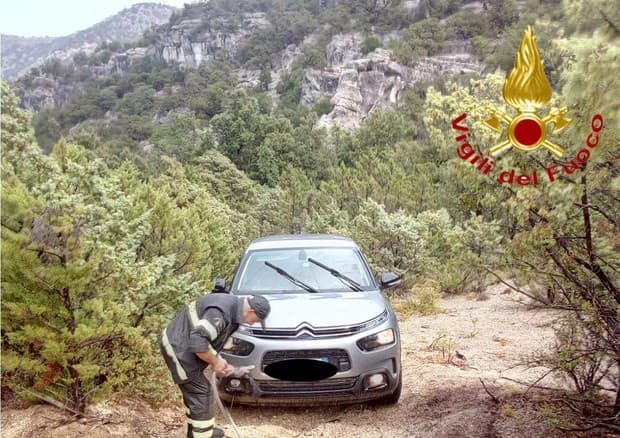Italian town bans use of Google Maps after 'too many' people get lost

A town in Sardinia has “banned” the use of Google Maps after too many people got lost locally while using the app, local media reports.
The mayor of Baunei, in the Ogliastra area of Sardinia, has complained that people keep getting lost or stuck after Google Maps directed them down impassable roads and onto rugged hiking trails.
Several hikers have reportedly gone missing and “many” cars have become stuck in the impassable narrow roads of the Supramonte area after following directions from the app, the mayor said.
“Too many sedans and small cars get stuck on impassable paths, sometimes even off-road vehicles too,” Baunei Mayor Salvatore Corrias told the Ansa news agency.
“All this because you follow the suggestions of Google Maps which, on our roads, are often misleading,”
READ ALSO:
Last year alone 144 people were rescued by emergency services after getting lost in the area - most recently, two tourists in a Porsche ended up stuck on a narrow mountain pass, reports Il Messaggero.
These rescues in remote areas prove costly for the emergency services and local authorities, the mayor said.
Local authorities are now placing signs near roads and paths saying "Do not follow the directions of Google Maps".
"We're puttting them everywhere", Corrias told the Ansa news agency, adding that the council has also complained to Google about its directions.
Baunei is located in a wild and mountainous part of the province of Nauro, north-eastern Sardinia, which is famous for its incredible white sandy beaches, beloved by tourists from Italy and abroad.
"The old paper maps are better", Corrias said, “or better still, use an expert local guide from our area.”
Sardinia is not the only place in Italy where tourists get into trouble using Google Maps.
In Venice, despite a plethora of road signs in English and Italian warning visitors that they can't drive in the historic city, several tourists still cause chaos each year by attemptng to drive alongside the canals.
READ ALSO:
Comments (1)
See Also
The mayor of Baunei, in the Ogliastra area of Sardinia, has complained that people keep getting lost or stuck after Google Maps directed them down impassable roads and onto rugged hiking trails.
Several hikers have reportedly gone missing and “many” cars have become stuck in the impassable narrow roads of the Supramonte area after following directions from the app, the mayor said.
“Too many sedans and small cars get stuck on impassable paths, sometimes even off-road vehicles too,” Baunei Mayor Salvatore Corrias told the Ansa news agency.
“All this because you follow the suggestions of Google Maps which, on our roads, are often misleading,”
READ ALSO:
Last year alone 144 people were rescued by emergency services after getting lost in the area - most recently, two tourists in a Porsche ended up stuck on a narrow mountain pass, reports Il Messaggero.
These rescues in remote areas prove costly for the emergency services and local authorities, the mayor said.
Local authorities are now placing signs near roads and paths saying "Do not follow the directions of Google Maps".
"We're puttting them everywhere", Corrias told the Ansa news agency, adding that the council has also complained to Google about its directions.
Baunei is located in a wild and mountainous part of the province of Nauro, north-eastern Sardinia, which is famous for its incredible white sandy beaches, beloved by tourists from Italy and abroad.
"The old paper maps are better", Corrias said, “or better still, use an expert local guide from our area.”
Sardinia is not the only place in Italy where tourists get into trouble using Google Maps.
In Venice, despite a plethora of road signs in English and Italian warning visitors that they can't drive in the historic city, several tourists still cause chaos each year by attemptng to drive alongside the canals.
READ ALSO:
Join the conversation in our comments section below. Share your own views and experience and if you have a question or suggestion for our journalists then email us at [email protected].
Please keep comments civil, constructive and on topic – and make sure to read our terms of use before getting involved.
Please log in here to leave a comment.